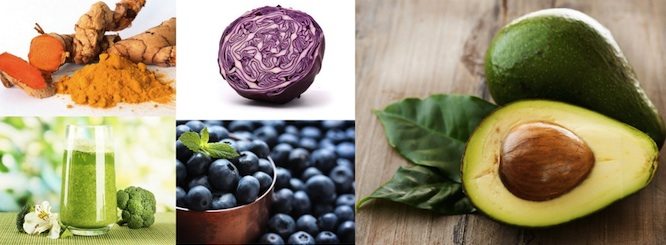Time for a course in Vegan Nutrition 101!
Becoming educated on the basics of a healthy, vegan diet plan is a vital first step on your journey to a Sexy Fit Vegan lifestyle you love!
Here are some simple vegan nutrition concepts that are important to learn and incorporate into your vegan diet plan. Once you have these down, you will be ready to receive more in depth information. Remember, one step at a time is the key to a successful Sexy Fit Vegan lifestyle transition!
Variety is Key
Eating a wide variety of vegetables, fruits, nuts, seeds, legumes, and whole grains is key for balanced vegan nutrition. When we eat a variety of nutrient-dense whole foods we are able to take in optimal amounts of all of the essential vitamins and minerals we need to be physically and mentally healthy and energized from the inside out!
Gear up for Tons of Greens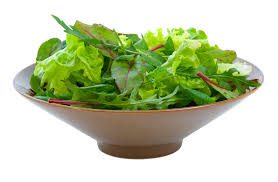
Greens are a large part of a strong vegan nutrition foundation. Dark green leafy vegetables may be, calorie per calorie, the most nutrient-dense foods that exist. Dark leafy greens are a rich source of many vitamins and minerals. They also contain phytonutrients that protect our cells from damage. Variety is key when it comes to which leafy greens you should consume, and there are benefits to eating them both raw and cooked. Kale, collards, spinach, broccoli rabe (rapini), dandelion greens, cabbage (including bok choy), turnip greens, and chard are among the most nutritious greens we have to choose from.
Step it up with Seeds & Nuts
Among the most nutritious seeds are chia, hemp, flax, pumpkin, sesame , sunflower, and pomegranate. By simply adding a serving of chia, hemp, and flax meal to your shake every day, you will load up on quality complete vegan protein (hemp seeds are a complete protein), essential fatty acids, disease-fighting phytonutrients, fiber, and anti-oxidents! 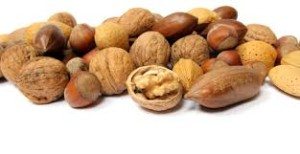 When it comes to nuts, walnuts, almonds, cashews, pecans, brazil nuts, and macadamia nuts are among the healthiest nuts, all with different beneficial properties. Eating a handful of these nuts as a snack or on salads is a great way to take in “good fat” (which lowers LDL cholesterol), nutrients like omega-3 fatty acids, magnesium, anti-oxidants, vitamin E, iron, zinc, and selenium. Eat nuts and seeds in moderation (think of a serving size as being a small palm full).
When it comes to nuts, walnuts, almonds, cashews, pecans, brazil nuts, and macadamia nuts are among the healthiest nuts, all with different beneficial properties. Eating a handful of these nuts as a snack or on salads is a great way to take in “good fat” (which lowers LDL cholesterol), nutrients like omega-3 fatty acids, magnesium, anti-oxidants, vitamin E, iron, zinc, and selenium. Eat nuts and seeds in moderation (think of a serving size as being a small palm full). 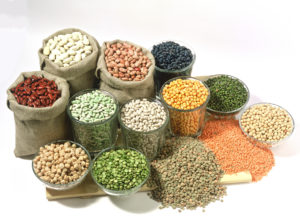
Bring on the Beans
Legumes are a great source of protein. The more you learn about vegan nutrition, the more you’ll want to add legumes to your daily menu. Legumes include beans, lentils, soybeans, peas, peanuts, snap beans and edible pods. They are also extremely high in fiber, the number one protective factor against heart disease. Additionally, legumes contain many different important vitamins and minerals. Eating them greatly reduces your risk of cardiovascular disease, the world’s leading cause of death. Evidence also shows eating legumes reduces your risk for certain cancers, particularly colon cancer.
Pay Attention to Processing
Just because it’s vegan, doesn’t mean it’s healthy! Many of us know the basics about staying away from refined sugars, processed grains, and unhealthy oils (which is important for not only vegan nutrition, but nutrition in general). You may be less familiar with the processing of many meat substitutes on the market today that reduces the nutritional value and adds unhealthy ingredients. The ingredients for products like veggie burgers, faux chicken patties, and faux deli meat slices should be read carefully so you are aware of exactly what you are consuming. If you are using these meat substitutes in an effort toward reducing/eliminating your meat intake, with the ultimate goal of eating them only occasionally… I say have at it! In the grand scheme of things, the end-result of your new, healthy vegan lifestyle will last a lifetime. It’s worth a period of eating more than the ideal amount of processed meat substitutes on your journey toward ideal vegan nutrition!
Soy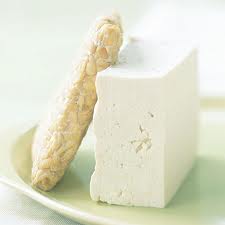
We have all heard a ton of conflicting recommendations when it comes to consuming soy. Based on all the research, it appears that for most people, eating a moderate amount of organic, non-GMO, unprocessed soy is beneficial to our health. Fermented soy products like natto (fermented soybeans) and tempeh, as well as whole soybeans are healthiest, followed by tofu. These forms of soy can provides high quality, complete protein, fiber, and isoflavones, and have been shown to reduce the risk of breast cancer. For some people with allergies and those who are on certain thyroid medications, soy should be avoided and these nutrients can be consumed through other foods.
Protein
The number one vegan nutrition question I get when people find out I’m vegan is, “How do you get protein on a vegan diet plan?” My reply is, “It’s much easier than you think!” We often don’t think of plants as containing protein, but that is a myth. For most people, eating a moderate amount of legumes, nuts, and seeds with your vegetables, fruits, and whole grains daily will usually get you enough protein to maintain muscle mass and be healthy. For athletes and fitness freaks like me who require extra protein, adding plant-based protein shakes to your daily routine can boost your vegan protein intake tremendously, each single serving shake containing up to 30g of protein.
Whole grains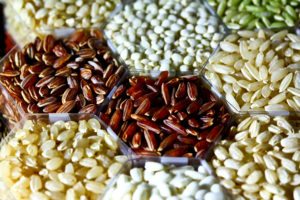
Grains get a bad wrap, especially with the popularity of low-carb and paleo diets. The truth is that there are pros and cons to eating grains just like just about everything else we consume. Eating unprocessed, organic, non-gmo, whole grains does have proven health benefits and is considered part of complete vegan nutrition. The same cannot be said for processed or genetically modified grains. The healthiest grains include amaranth, teff (1 cup contains the RDA of iron!), farro, millet, bulgar, and barley. Quinoa and buckwheat are two nutrient-dense grain-like seeds that can be used instead of traditional grains to increase vegan protein consumption. If you are trying to lose weight, it can be helpful to cut grains from your vegan diet plan, thereby decreasing carbohydrates, which in turn helps you lose both water weight and body fat. It’s important to replace the grain in your diet with nutrient-dense plant foods so you do not “starve” your body of the vitamins and minerals it needs to be healthy. Endurance athletes on the other hand, need additional carbs to provide extra energy to the body.
Boost Your Body with B12, D, and Calcium
It is crucial for everyone on a vegan diet plan to take a B-12 supplement. B12 is the one nutrient that a modern plant-based diet inherently lacks. Vitamin D is another nutrient that we need to pay particular attention to, especially if you do not spend a lot of time in the sun with much of your skin exposed. Eating vegan dairy substitutes and cereals that are D-Fortified is one way to make sure you are getting the recommended amount. If this is not happening, or is inconsistent, a supplement may be necessary. Calcium is one other nutrient that we simply need to be aware of in our diets. If you are not eating a large amount of dark leafy greens, soybeans, &/or fortified vegan foods, there is a good chance you are lacking sufficient calcium intake and need to supplement when going vegan.
Stock Up on Super Foods
What are super foods? People talk about them as if there is an official list of foods defined as “super foods”. This is not the case! The term is simply used to describe foods that someone believes are highly nutritious. Some super foods on my list that I keep my kitchen stocked with are: Spinach, kale, broccoli, brussels sprouts, chia seeds, hemp seeds, almonds, walnuts, flax meal, quinoa, berries, pomegranate, avocado, coconut, mushrooms, turmeric, garlic, amla powder, and maca root powder. For a comprehensive list of super food and kitchen staples check out the How To Go Vegan Beginner’s Guide.


